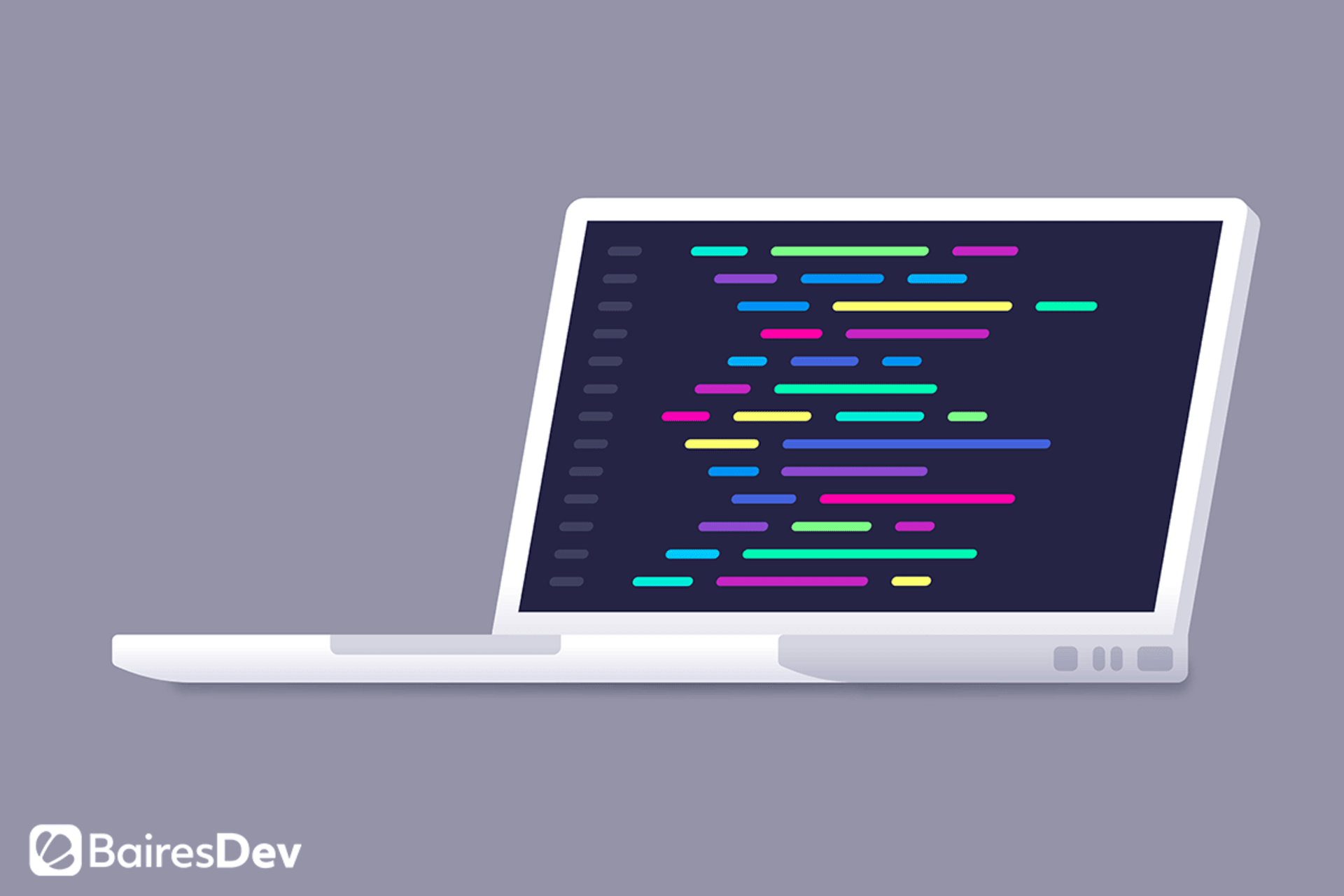Every day I get asked more and more frequently how to hire the best software developers. Unsurprisingly enough, these questions come from business leaders at startups, middle-market businesses, international enterprises, and everything in between. I take that as a clear sign that developing custom software solutions for any organization is as important as it has ever been.
If you belong to any of these groups, it’s likely that you’ve already realized how hard it is to hire a developer that actually fits your project’s needs. Not only is our society running low on specialized tech talent, but the people who are actually able to do the job right are spread too thin around the world, making it particularly hard for businesses to form an all-star team of software engineers.
And if that weren’t enough, businesses without some form of expertise in software development end up having a harder time than the rest, mainly because most don’t even know what they are looking for. Learning about technology stacks, agile methodologies, DevOps, and common practices in the industry takes a lot more time than you’d imagine.
Hiring the best software developers comes with a series of benefits that you don’t want to miss. If you don’t, that might cost you some time, money, and missed opportunities. In this article, we will go over some of the key facets of the software development industry and what you can do to hire the best developers for your business, whether you need a single engineer or an entire team of experts.
Why Hire Top Developers?
You want to have the best developers in your team for the same reason you’d want the best cooks in your restaurant or the best musicians in your orchestra: talented people always draw the line between average and excellence. And in a field as complex and fast-paced as custom technology development, higher-quality products always lead to better, faster, and more cost-efficient results.
That, however, means that every single company pushing for digital acceleration will be competing with you to hire the best talent, regardless of where you are located. Thanks to the sheer number of collaboration services and tools readily available today, development teams have become notoriously famous for their ability to work in remote locations without sacrificing efficiency or compromising the product in any way.
This twisted low-supply market is far from turning around. The US Bureau of Labor Statistics expects the demand for software developers to grow 21% by 2028, compared to just an average of 5% for all other jobs. There are just not enough qualified people to fill these positions, especially if you’re only counting on local talent pools.
What’s more, the companies that actually get to hire top software developers will be the ones to harvest all the benefits of well-made software, giving them an edge over their competitors and building their momentum for pivoting in the ever-changing tech scene. Clearly, you’re reading this article because you want to be one of them. So let’s start revealing some insights.
What to Look For When Hiring a Developer
Whether you’re thinking of working with a freelancer, hiring a new team member, adding temporary talent to your tech department, or even outsourcing the entire software development process to a third-party, you can always keep these key points in mind to evaluate how they fit in with your project.
Look for someone smarter than you
They say that if you’re the smartest person in the room, then you’re in the wrong room. That’s a statement you must live by when hiring the best developers in the market. Intelligence, however, can be defined in many different ways. You’ll need to check with your HR or recruiting team for that. What matters here is finding a person that has the type of smarts you need for your particular software venture.
And what’s the defining trait for intelligence in software development? Not creativity, not technical knowledge, but problem-solving. While there’s no doubt that the previous traits are critical for the job, problem-solving abilities are what actually pushes good software forward. New issues will constantly arise throughout development, that’s a given. You want someone who can show an ability to turn a problem around and find a solution that most people (including you) wouldn’t see.
Look for flexibility and familiarity with diverse software environments
Let me start by saying this: no one, absolutely no one can be a true expert in more than a few things in software development. There are just too many programming languages, frameworks, and tools that lead to countless rabbit holes and creative possibilities. What’s more, every day there are new advancements in the industry that change the way developers work and approach problems.
The best software developers always take on an open approach to their craft. Even when they don’t know something, the problem-solving ability we talked about before will power the flexibility required to make things happen. You’re looking for the result of various years of this practice: a talented engineer familiar with many software environments.
Look for strong communication and collaboration skills
I’m going to throw another common saying in here: “If you want to go fast, go alone. If you want to go far, go together”. We’ve all heard the stories of extra-passionate developers that spent thousands of hours creating an amazing product that made lots of money.
Sometimes, this is the work of a single person. More often than not, it takes a few more to make it to the goal. But what always remains true is that, once it becomes a running product, that person will require a strong and diverse team to support it.
In a business environment, it’s highly unlikely that you would want to put all your faith in one single person to run everything. When you factor in agile methodologies, there’s just no reason to go for a lone wolf. A great developer will know how to work with a team and apply their talent where it can make the most impact. You want to find someone who’s not only able to fulfill their role, but also augment the work of others.
Look for the creative type
Technical and theoretical knowledge is super important to develop high-quality software. However, if that were all that’s needed, it would be a lot easier to find great developers for your team. After all, most of this type of knowledge can be easily learned after a quick Google search and some light browsing.
The ability to be creative is what drives innovation in software development. You want to find someone who’s quick on their feet and has no problem getting their ideas out in the wind. If that someone comes from a different background from yours and the people already on the team, all the better. A wider perspective is always great for developing software.
Look for clean coders
Although I said numerous times how complex the software development industry is, the best software developers are the ones who can make it look easy. Testing for coding skills is a common practice when hiring great programmers but not too many business leaders look at how clean the code is.
Hiring people who can code cleanly will not only make your products better but also facilitate flexibility during sprints and allow your team to do maintenance and install future updates without running into too much trouble. A person who writes messy code, on the other hand, is just hard to collaborate with and could slow down your operations.
Look for talent over experience
If you’re lucky enough to run into a software developer that shows talent and can prove both their technical abilities and soft skills, my greatest recommendation is to give less importance to whatever experience shows in their resume. As I’ve said before, talent is actually the most scarce resource in the industry and you are going to want to hold on to it.
Still, you need to take into account what role that person needs to fulfill. If you’re looking to get something done in a specific way, then a developer with experience in that subject might be better for your purposes. If you’re looking to grow an existing team and drive innovation, then a fresh mind could help you think outside the box.
What to Avoid When Hiring a Developer
Employers are prone to commit many types of mistakes that harm the efficiency and potential of new hires for the development team. If you want to make the most of your most recent addition to the talent in your company, then it would be best to avoid the following.
Poor onboarding practices
One of the most common ways to start on the wrong foot with a recently hired software developer is to throw them into an ongoing sprint without explaining anything. While one could argue that’s on the project manager or the scrum master, there are a lot of things that need to be made clear during or shortly after the final interview.
Giving proper support to new developers is an investment that pays off in productivity and morale. Introducing a new environment always requires orientation on the project’s goals, the completed work, and the challenges that the team is facing. It’s also a good idea to go over workflows, work culture, and responsibilities. And don’t forget to provide the proper project documentation!
Unclear expectations
Relying on assumptions and imprecisions is a risky game. When you hire software developers and don’t tell them what you expect from them, you’re actually throwing a lot of curveballs to the entire team. You don’t want to have people with clashing ideas of what tasks they should tackle and what goals they should prioritize.
It’s best to be as clear as you can on the details of the job. Proper communication will always lead to higher-quality work. Bear in mind that your new hire should complement the abilities of your current team, so talk with them to find out what they expect of the new hire and where that person could deliver the most value.
Misleading job descriptions
While we are on the topic of expectations, it’s also fairly common for employers to say they want a developer to do something, but once that person is hired they end up doing something completely different. Misleading practices like these are not only unethical but also lead to higher turnover in your team. And you can trust that person will not recommend your company as a good place to work.
If you find a good candidate that isn’t exactly the profile you’re looking for, be honest with them and say it like it is. Developers rarely want to adapt their skillset in drastic ways for a job, but if your project is interesting enough there’s a chance they will do it anyway. Anything is better than relying on misleading practices.
Don’t make it all about money
Depending on where you’re located and what types of developers you’re looking to hire, you’ll probably run into a fairly wide gamut of salary expectations. In situations like that, you might ask yourself if someone who asks for five times the wage will do five times a better job. Or if someone who asks for a lower salary than what you estimated will be up to the task.
First of all, you need to be clear on what type of return over investment you’re expecting from that hire. Just like any other employee, developers have many motivations and needs. And the possibilities grow exponentially when you open up to a remote market. In any case, retaining top software development talent will always go beyond money. Your work culture, team structure, quality of projects, and the sense of purpose your company offers will also come into play.
Define What Type of Developer You Want to Hire
After going over all of the above, we can start talking about some specifics you need to take into account in the hiring process. Developers have a wide range of skill sets and abilities. You’ll need to understand the basic difference between them to effectively evaluate their potential and their impact on your project.
If you’re not too familiar with software development and how things get done in this industry, then pay special attention to this part. The areas of expertise in software development go far and wide, and you at least need to know about the most basic ones.
- Frontend development: These developers specialize in the user-side of software applications or the part of the software that your target audience interacts with. This includes things like visual interfaces, program aesthetics, and layouts. JavaScript, React, HTML, and CSS are some common frontend programming languages.
- Backend development: Backend developers work on the logic that allows the software application to run. This includes things like database management, caching systems, and pipelines. Python, C++, SQL, PHP, Ruby, and ASP.NET are some common backend development programming languages.
- Full-stack development: A full-stack developer has a combination of the two previous areas of expertise. They are proficient in many programming languages and have experience in various types of development projects. They are what you would call a “jack-of-all-trades”.
- Web development: As the name implies, a web developer specializes in creating websites and web applications. Their level of skill extends over different areas of frontend and backend development, but most of the time they will specialize in one or the other. Java, Go, Ruby, C, and Swift are some common web development languages.
- Mobile development: Similarly, mobile developers specialize in the design, development, and maintenance of applications that run on mobile devices like smartphones, tablets, and even wearable tech. JavaScript, Kotlin, C#, Python, and Swift are some common mobile development languages.
- UX/UI designers: Although UX/UI designers aren’t always categorized as developers, they are a crucial part of the software development process. Their job is to create engaging and friendly designs that attract users and make the software easy to use.
- Data science developers: A data science developer works on software solutions that help businesses collect, analyze, and generate actionable insights from data. They are experts in analytics and statistical analysis and provide predictive models to power business growth. Python, Scala, R, SQL, and Julia are some common data science development languages.
- DevOps engineering: DevOps or Development Operations engineers are IT experts that oversee and manage the relationships between the development team and company operations. They work with the development team to build, implement, and maintain software and distributed systems through agile methodologies.
- QA and testing: Quality assurance and testing engineers are responsible for determining if a software product is fulfilling its goals or not. They continuously put the software through stress to reveal bugs, flaws, and points of improvement. QA and testing are essential to developing high-quality software.
- Support engineering: These engineers work on the maintenance and support of software products, guaranteeing their uptime, reliability, and optimal functionality. They play a big role in large-scale projects that require constant monitoring of activities and performance.
The Alternative
As we’ve seen, anyone looking to hire software developers will have to go through a lot of steps and considerations to find the perfect fit. However, we’ve barely even touched how hard it is to keep talent on board and how important it is to keep hiring the right people to ensure the scalability of your project.
That’s why outsourcing software developers has become such a common practice today. By working with an experienced IT company, any organization can get immediate access to the best software developers in the global market and stop worrying about anything related to sourcing, hiring, and retaining talent.
No matter the nature of the expertise you’re seeking, a leading software outsourcing company will undoubtedly have the necessary talent available on-demand, courtesy of finely tuned recruitment processes that ensure the engagement of the most proficient engineers. For example, at BairesDev, we employ a proprietary AI solution to facilitate our search for top talent. This robust approach enables us to sift through over 1 million applicants annually to identify the most skilled individuals.
Staffing Hero is a machine learning-driven algorithm that uses our clients’ requirements as a starting point to match them against our database of Top 1% of Software Engineers. Through a complex mechanism, the platform analyzes the requirements and searches through our available engineers to build the perfect team based on relevant criteria (such as seniority and industry-related experience).
With Staffing Hero, we can meet the highest recruitment standards demanded by the market while increasing the speed and quality of our hires. A reputable software outsourcing provider should always have sophisticated processes and tools to make sure they are offering the best developers. Keep that in mind when hunting for outsourcing companies.
If you want to learn more about how to hire software developers and the benefits of adding tech talent to your development team, send us a message and we will be happy to help.









